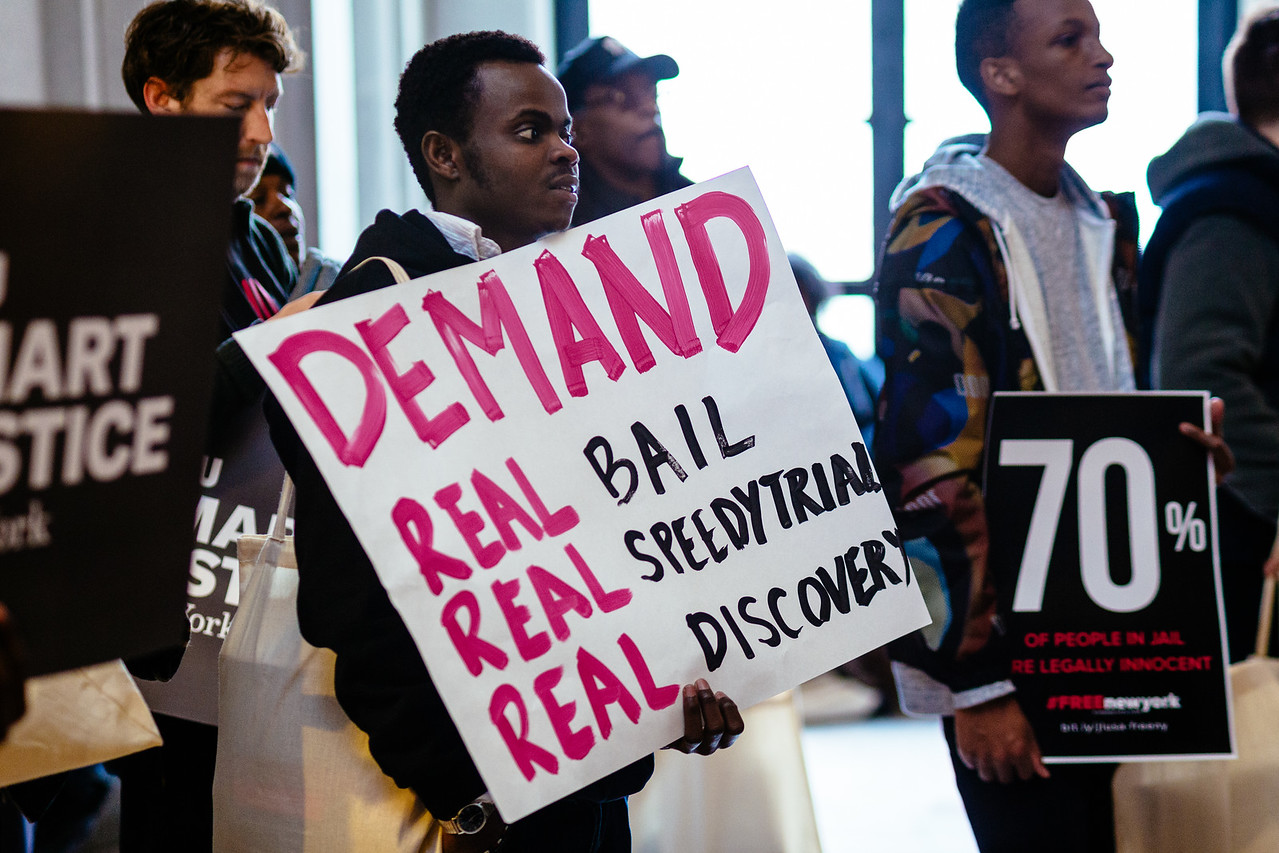Why is NY’s Onondaga Nation School Crumbling?
Civil Liberties Union

This year, state legislators finally seem to be confronting the fact that New York state’s bail system is deeply flawed and in need of transformative change.
The governor and legislative leaders have promised action, and reform now stands a real chance of passing in the state budget negotiations that are due to wrap this weekend.
Yet at the 11th hour, some lawmakers, including some from our Long Island delegation, are pushing to include a poison pill in the budget – one that would stifle real bail reform, entrench racial bias in the system, and even risk an increase in the number of New Yorkers in jail.
Bail is meant to be a tool courts use to ensure that a person accused of a crime returns for trial. But each year, thousands of New Yorkers who have not been convicted of a crime remain behind bars– kept from work, family, and appointments – simply because they can’t afford to pay to get out.
For these New Yorkers, freedom depends on the size of their bank accounts. When they can’t pay, they either remain locked up until their trial – which can take months or even years – or they plea bargain, sometimes even pleading guilty to get out of jail sooner than they would if they awaited trial.
With Albany on the cusp of a real legislative fix for this injustice, some lawmakers are being swayed by fearmongering from local prosecutor groups in recent days. These district attorneys are pushing for any bail reform legislation that would include a so-called “dangerousness” standard.
This standard would allow a judge to deem someone to be a threat to the public based on little more than supposition. The judge could use this dangerousness rationale to keep someone in jail before trial, even though that person remains legally innocent.
These prosecutors seem to think New Yorkers would be happy to live in the dystopian world of the movie Minority Report, where supposed evidence of pre-crime keeps you locked up.
New York lawmakers have never been swayed by this view, and have fended off the addition of a dangerousness standard to our law for decades – under both Republican and Democratic leadership, no less.
They have had good reason. There is no evidence that the use of a dangerousness standard would make New York any safer. New York City, for example, has been able to reduce its pre-trial jail population and reduce crime without allowing judges to keep people jailed based on this kind of guess work.
Real reform also means standing strong in the face of fearmongering and rejecting 11th-hour scare tactics.
A dangerousness standard also risks keeping New York’s jail populations high, as we have seen at both the federal and state levels. After the federal government enacted the Bail Reform Act of 1984, which included dangerousness as a factor for judges to consider when deciding whether to release someone before trial, the percentage of people held in jail pre-trial increased from 24 percent in 1984 to 64 percent in 2010.
Locking more people up means abandoning one of the core goals of the bail reform movement – to reduce unjust and costly mass incarceration trends.
Worse yet, based on states that have implemented this type of provision, a dangerousness standard only increases the already egregious racial disparities in our criminal legal system.
People of color, especially black people, are disproportionately impacted at every stage of the criminal legal system. They are more likely to face arrest, to face stiffer charges, to get convicted and to receive harsher sentences. When judges are asked to lock people up based on a perceived threat, the criminal histories on which they rely are already skewed by this racial disproportionality.
Now, with lawmakers jostling for major legislative change in the state budget this week, it is time that New York embrace real reform – not a version that widens inequality, keeps our jails packed, and spreads fear without making anyone safer.
Real reform means ending cash bail, as the governor, assembly, and senate have committed to do. It means ensuring that freedom doesn’t depend on whether you have wealth, or on the color of your skin. And it means acknowledging that everyone is innocent until proven guilty.
Real reform also means standing strong in the face of fearmongering and rejecting 11th-hour scare tactics.
The thousands of New Yorkers spending time in jail while presumed innocent shouldn’t have to wait any longer.